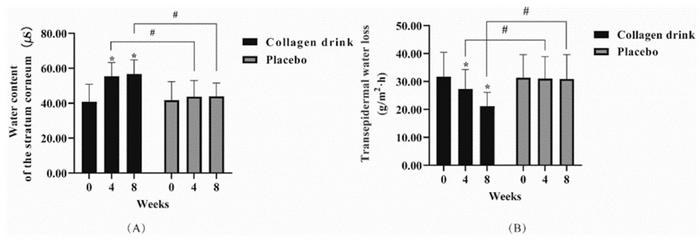A collagen and elastin peptide drink may effectively combat skin aging in young and middle-aged individuals, a new study suggests.
For the study, 70 volunteers were recruited to evaluate the effects of an orally administered collagen drink combining collagen and elastin peptide supplements on the skin health of young and middle-aged women.
The participants were divided into two groups: one treated by collagen-rich drink (combination effects of different collagen peptides including tripeptide) and the other received placebo.
The beverage is named as WONDERLAB Fish Collagen Tripeptide Beverage and was provided by Shenzhen Precision Health Food Technology Co., Ltd. It contains water, fish collagen peptide, fish collagen tripeptide, bonito elastin peptide solid powder, salmon nasal cartilage compound powder with addition of edible flavoring. The product formulation included water, fish collagen peptide, fish collagen tripeptide, bonito elastin peptide solid powder, salmon nasal cartilage compound powder with addition of edible flavoring.
Compared to the placebo group, the collagen drink group showed significant improvements in skin hydration, transepidermal water loss, skin elasticity, dermal collagen content, pore size, wrinkle length, skin smoothness and skin roughness decrease.
Mass spectrometry showed a significant increase in collagen efficacy components, including blood pH and Gly-Pro-Hyp (GPH) levels, the researchers report.
The study appears in the Journal of Dermatologic Science and Cosmetic Technology.
PHOTO CAPTION: Fig. 1. Influences of treatments on skin hydration indexes, including water content (A) and Transepidermal water loss (TEWL) of volunteers (B) *: Intra-group significance difference, P <0.05;#:Inter-group significance difference, P < 0.05.
PHOTO CREDIT: Shan Lu, et al


